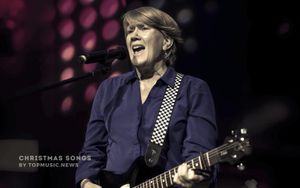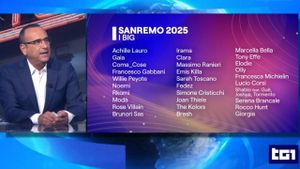Ecuadorians went to the polls on February 9, 2025, to elect their next president amid a climate of political tension and societal challenges. The main contenders were current President Daniel Noboa, representing the Acción Democrática Nacional party, and Luisa González, who runs under the banner of the Revolution Ciudadana movement, akin to former President Rafael Correa's vision.
Noboa, at just 37, made history as Ecuador's youngest leader when he took office at the end of November 2023, stepping up to complete the term of Guillermo Lasso, who was ousted following allegations of corruption and political turmoil. Under Noboa's governance, he had promised to tackle the spiraling crime rates and economic challenges plaguing the nation, but his record has been controversial.
The elections held on February 9 were particularly polarized, stemming from the competing political ideologies of Noboa's center-right policies against González's progressive agenda. With 16 candidates vying for the presidency, the attention remained squarely on the two frontrunners. According to pre-election surveys, both candidates maintained leads over the remaining aspirants, garnering early support from various sectors of society.
Ecuador's issues are multi-faceted, with crime and violence stemming from narcotrafficking topping the list of citizen concerns. "Ecuador recorded the highest homicide rate last year, which showcased the need for immediate and effective governance to restore peace and order," remarked Caroline Ávila, a communications expert knowledgeable about the political scenario.
Voting began at 07:00 and extended until 17:00, with over 13.7 million Ecuadorians eligible to cast ballots. Citizens awaited results with anticipation as initial numbers were expected at 20:00 local time, three hours after polls closed. Noboa, capitalizing on earlier successes, aimed to solidify his administration but faced significant hurdles including discontent over economic management and crime control efforts. "The public sentiment appears divided—some still support Noboa's firmness, seeing it as necessary for respect and order; others question it, pointing out the rising poverty rates," said political analyst Andrés Chiriboga.
Voter turnout was pivotal not just for the presidency; Ecuadorians were also to elect 151 members of the National Assembly and five representatives for the Andean Parliament, representing the populace’s desire for political representation amid this tumultuous political period. Observers noted how the Assembly's composition could symbolize future government stability or turmoil.
President Noboa's tenure has been marked by moments of criticism, particularly his controversial military actions against criminal elements, which were perceived by some as authoritarian. His recent decision to rectify relations with international partners after previously severing ties with Mexico drew notable debate. Analysts argued, yes, it might have solidified his support among those seeking decisive leadership but could also portray him as overstepping bounds. And now with the elections, the citizens had their chance to voice their opinions directly.
While expectations were high for Noboa to potentially secure enough votes for reelection without proceeding to a runoff—a scenario anticipated by political commentators—there remained uncertainty about González's capability to mobilize the base of voters loyal to Correa. Historically, her party thrived on dissatisfaction with previous administrations, posing formidable challenges to incumbent candidates.
The results would not just reflect the people's choice of president; they indicated which direction Ecuador would chart going forward, especially as public anxieties shift amid persistent economic woes and security concerns. The nation awaited the outcome eagerly, knowing its future hinged on these polls.
Security remains another pressing concern for the electoral process, after incidents of violence marred previous elections. To safeguard the voting sites, the military and police forces were deployed across urban areas, especially concentrated around the most affected regions like Guayaquil, which has faced intense gang violence.
Polling data indicated significant public engagement, with early voting numbers reflecting democratic enthusiasm. "People are eager to participate; they understand the weight of this moment,” stated Diana Atamaint, head of the National Electoral Council, as she emphasized the importance of maintaining order during the electoral process.
Today's electoral atmosphere starkly contrasts with past elections marred by violence and disorder. Citizen participation symbolizes hope for change and democratic stability, with voters placing their trust once again at the ballot boxes. With election day finally here, Ecuador stands on the brink of potential transformation through the choices made by its electorate.



